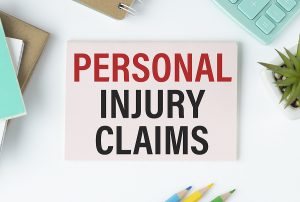The Basics of Personal Injury
 Michael Babboni
Personal Injury
Before you file a personal injury claim, it is important to understand the basics of personal injury to have a better idea of what to expect during the process.
Michael Babboni
Personal Injury
Before you file a personal injury claim, it is important to understand the basics of personal injury to have a better idea of what to expect during the process.Personal Injury Case Types
Many situations can warrant a personal injury case. Accidents, intentional acts, and defective products are just a few of these situations. For example, when filing a claim following an accident, you must prove that the one at fault was operating negligently and their carelessness caused harm to another. Examples of these accident cases include car accidents, slip and falls, and others.
How Does It Work?
Since no two accidents will be the same, the way the personal injury case progresses may vary from one case to another. However, there are general steps that are typically followed in all personal injury suits.
The defendant is proven to have done something to injure the plaintiff. The plaintiff then determines that the defendant breached a legal duty and did not operate with the level of care that any other reasonable person would have to avoid the accident from happening.
Settlement talks are also typically a part of the process once all evidence has been collected and reviewed and it was determined there was a breached legal duty. Then, the defendant or their insurance company representing them can try to settle out of court.
To do this, they would make a monetary settlement offer of compensation to the plaintiff in exchange for a promise not to file another lawsuit over the injury again. If the settlement is agreed on, the case is over. If not, the case then goes to trial as a personal injury lawsuit.
Do You Need a Lawyer?
You don't necessarily have to have a personal injury attorney to help you, but it is definitely advisable. If you attempt to manage your own case and then choose to hire an attorney later on, you may find that it can complicate things. So, it is best to hire an attorney from the beginning immediately following the injury.
If you live in a no-fault state like Florida, you may be limited to damages you can recover based on your own personal injury protection coverage, so hiring an attorney may not always make the most sense here.
However, if the injuries turn out to be more significant, you may qualify to step outside of the state's no-fault system. In this case, an attorney can definitely help you proceed with your claim.
How Long Does It Take?
Some personal injury cases have been known to go on for months and even years. However, you can avoid this when you choose a settlement. A personal injury claim can settle quickly, but you may have to accept a lesser amount of compensation to do so. So, it might not always be the best strategy.
If there is a problem with legal or factual issues related to the case, it involves a significant amount of money, or the point of maximum medical improvement has not been reached, then the timeline of your personal injury case may be longer than you initially expected.
To help determine if you should settle or be patient and let the process work out on its own, discuss the case with your personal injury attorney. They can help you determine the amount of compensation you are entitled to and will help you understand if a settlement is just too little.
Now that you know some of the basics of a personal injury case, you are better prepared for what might happen and the next steps.
